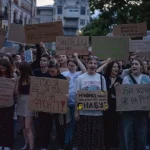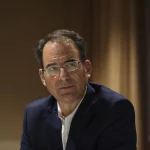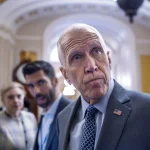
–>
May 18, 2022
The proposed amendments by the U.S. to the International Health Regulations do not degrade the sovereignty of the United States. The proposed amendments will reduce the power of a country to prevent the World Health Organization from declaring that a public health emergency exists in this country. There is nothing in the proposed amendments that obligates the U.S. to accept any such declaration by the WHO.
‘); googletag.cmd.push(function () { googletag.display(‘div-gpt-ad-1609268089992-0’); }); }
I cannot find anything in any American law or treaty to which the United States is a signatory that obligates any part of the federal government or any state government to agree with any such declaration by the WHO or in any way adopt or abide by any such declaration.
The proposed amendments would have positive and negative effects. Enactment of the amendments would make it more difficult for the Chinese Communist Party (CCP) to prevent the WHO from declaring a public health emergency in China. However, enactment would increase the ever-present danger that officials in the federal and state governments will declare a public health emergency when no such declaration is justified. The danger of increasing the WHO’s ability to declare a public health emergency is that it also increases the chances that an American official who cannot otherwise justify his or her declaration of a public-health emergency, will have an equally unjustified declaration by the WHO to cite in support of his or her declaration. An unjustified declaration by the WHO does not have any legal force in the United States, but it could have political force if not adequately evaluated by American officials and the American media. This is very likely, given that a significant number of American officials and members of the media are willing to do whatever they can get away with to advance their policy objectives.
The proposed amendment of Article 12 is most often cited in support of the position that the proposed amendments will destroy American sovereignty.
‘); googletag.cmd.push(function () { googletag.display(‘div-gpt-ad-1609270365559-0’); }); }
These amendments improve the structure of the WHO. Regarding Article 12, it makes sense to allow the WHO to react to potential health emergencies because bad actors like the CCP may prevent enough information from emerging to allow confirmation of an actual health emergency. Increased notification to all countries makes it less likely that information that could enable better protection for people will be hidden. Making it sufficient for the director-general to seek consultation with the country having the health event instead of actually having the consultation, reduces the ability of a recalcitrant country that refuses to consult with the director-general from impeding the WHO from declaring a public-health emergency. Eliminating the requirement that the country having the health event agree to the declaration of an emergency eliminates the veto power that a bad actor like the CCP has over a legitimate declaration of a public-health emergency. It is better that in deciding whether there is a public-health emergency, the director-general consider information beyond that which may be provided by the country having the health event. In deciding whether an emergency has ended, it is better to require the director-general to consult with others beyond the country in question. It also makes sense to allow the director-general to issue an intermediate public-health alert as this could save lives if a final public-health emergency declaration cannot yet be declared. Allowing a regional director of the WHO to provide guidance to countries before an international public-health emergency has been declared also could save lives.
The proposed amendments would improve the WHO’s structure and enable it to better perform its proper mission. That new structure would not degrade the sovereignty of the United States, at least on paper. However, the proposed amendments would not do anything to improve the performance of the WHO’s personnel, who have demonstrated over the past few years that they cannot be trusted to do the right thing. To the extent that the WHO would become more structurally efficient in declaring public health emergencies in situations involving legitimate emergencies such as COVID-19 and evil actors like the CCP, the WHO also would become more structurally efficient in making illegitimate declarations of public-health emergencies.
Given the current leadership of the WHO and the influence that the CCP has over the WHO, there could be illegitimate declarations by the WHO of public-health emergencies in the United States allegedly caused by the climate, reduction in availability of abortion, allegedly racist conduct, private gun ownership, border control, use of particular drugs and supplements like ivermectin, hydroxychloroquine, and zinc. Such illegitimate declarations by the WHO, although not legally binding on the United States, could be used as political cover for American officials to make the same illegitimate declarations, which, if allowed to stand, could be used to infringe on the liberty to which we are entitled.
The choice is whether we want the WHO to have a more efficient structure that would allow it to better preform its legitimate mission, or whether, because of the corruption and/or incompetence of a significant portion of personnel among the WHO, federal and state governments, and the media, we want the WHO to remain less efficient. Enactment of the proposed amendments would structurally improve the WHO, but would make it easier for bad personnel to continue to wreak havoc on America. I prefer that international institutions like the WHO, with legitimate missions, have efficient structures for accomplishing those missions, without degrading American sovereignty. I also prefer that there not be any bad personnel in the WHO, government, and media. It is relatively easy to get the structure of organizations right. It is much more difficult to get the personnel right. Before we make the WHO more efficient structurally, there should be a change in the WHO’s personnel, because given the performance of its personnel over the past few years, who cares what the WHO says?
Allan J. Favish is an attorney in Los Angeles. His website is allanfavish.com. In 2009 James Fernald and Mr. Favish co-authored a book about what might happen if the government ran Disneyland, entitled Fireworks! If the Government Ran the Fairest Kingdom of Them All (A Very Unauthorized Fantasy).
<!– if(page_width_onload <= 479) { document.write("
“); googletag.cmd.push(function() { googletag.display(‘div-gpt-ad-1345489840937-4’); }); } –> If you experience technical problems, please write to helpdesk@americanthinker.com
FOLLOW US ON
<!–
–>
<!– _qoptions={ qacct:”p-9bKF-NgTuSFM6″ }; ![]() –> <!—-> <!– var addthis_share = { email_template: “new_template” } –>
–> <!—-> <!– var addthis_share = { email_template: “new_template” } –>




